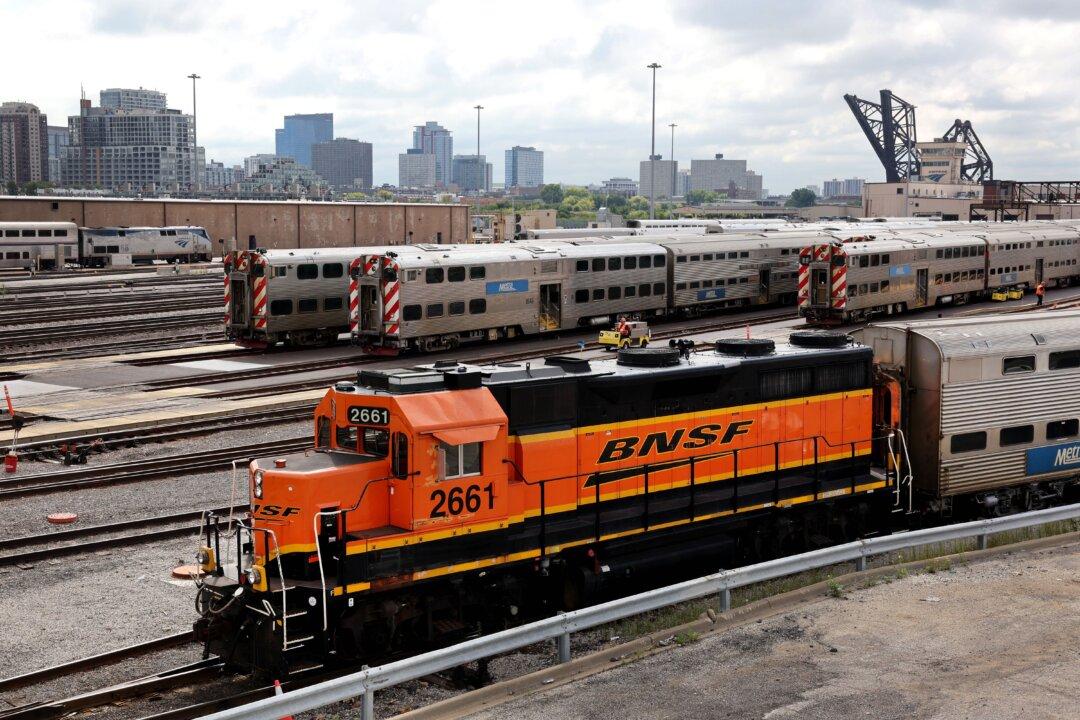A rail workers union rejected a contract deal brokered by President Joe Biden citing stringent management rules on taking time off for emergencies, raising fears of an imminent strike that could cripple already-disrupted supply chains.
“Railroaders are discouraged and upset with working conditions and compensation and hold their employer in low regard,” said Tony Cardwell, president of the Brotherhood of Maintenance of Way Employees Division (BMWED) in an Oct. 10 statement, after members voted 6,646–5,100 against ratification of the tentative national agreement reached with the Class I freight railroads.





